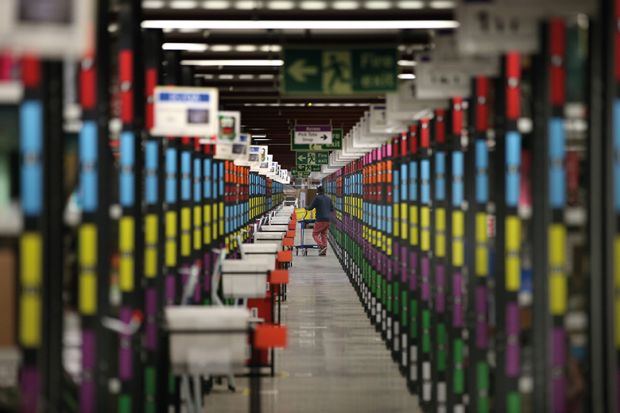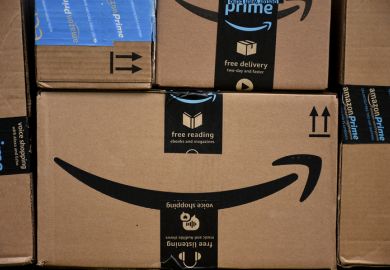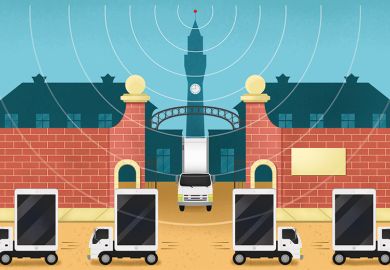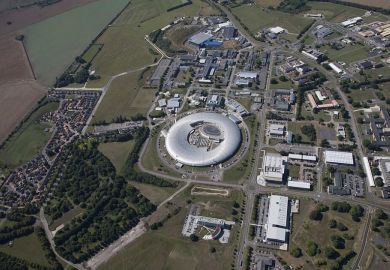Amazon’s highly public hunt for a new headquarters served as a massive advertisement for the value of investing in education and also as a signpost for where US universities still fall short.
In selecting sites around Washington DC and New York – two cities ranked among the nation’s most highly educated – Amazon made clear the seriousness of its oft-stated commitment to talent as prime in its search criteria.
And Amazon’s 11th-hour move to split the final decision between two locations might show that US universities, for all their talk of educating a robust 21st-century workforce, might not yet have figured it all out.
“My sense is they were looking for a broad array of talent, and they couldn’t find it in one city,” said Jamie Merisotis, president of the Lumina Foundation, which specialises in higher education and workforce needs. “And that may say something about how we produce talent in this country.”
Amazon, the world’s largest internet-based retailer and one of the three most valuable companies globally, announced its plans to establish a second headquarters to complement its base in Seattle in September 2017. It promised the selected area a massive infusion of 50,000 jobs, paying average full-time salaries of $100,000 (£77,000), as part of a two-decade investment worth $5 billion. The company listed a “highly educated labour pool” among its chief requirements.
Amazon was founded 24 years ago by Jeff Bezos as an online bookseller, but it now markets almost anything conceivable, and it is increasingly creating its own products and services. Its mission now appears to have evolved into an open-ended bid to combine knowledge of human behaviour, marketing, artistry, artificial intelligence and more into directions not yet imagined. As such, it is asking higher education not just for volume and quantity, but for uncharted realms of interdisciplinary thinking.
That prioritisation of talent appears baked into Amazon’s operations, touching even its lowest-paid workers. The company covers 95 per cent of tuition fees and textbook costs for hourly employees seeking to acquire certain high-demand skills.
A total of 238 US cities and regions lodged bids to host Amazon’s new headquarters by the company’s October 2017 deadline. Applicants emphasised educational and non-educational factors, such as transport capabilities and tax incentives. Amazon trimmed its candidate list to 20 in January. At that point, a Washington or New York selection seemed likeliest, given that those were the only locations with multiple finalists.
The winners named this week are the northern Virginia town of Alexandria, across the Potomac River from Washington, and an industrial area of Long Island City, across the Hudson River from Manhattan and the United Nations headquarters.
Washington was likely helped by being the nation’s political capital and a chief home for Mr Bezos, who owns both The Washington Post and a $23 million mansion in the city’s Kalorama neighbourhood. New York, the nation’s financial capital, leads the US with both its 8.6 million population and its 70 of the world’s Fortune 500 companies.
The two locations, however, also had strong educational credentials, scoring well above even the averages of the finalists on degree attainment, both generally and in technical fields. New York also has two of the nation’s top 15 business schools and one of its top 15 computer science schools.
That technical expertise is an area where the Washington region now appears ready to bulk up. Alongside Amazon’s announcement this week, Virginia Polytechnic Institute and State University (Virginia Tech) outlined plans to build a $1 billion, 1 million square foot (92,900 square metres) technology-focused campus 2 miles (3.2km) from the Alexandria site. Other local institutions, including George Mason University, also described plans for new facilities. Amazon’s commitments in New York include providing space for a technology start-up incubator and for a new school.
The two US cities with arguably better higher education credentials, San Francisco and Boston, both may have had major shortfalls that Amazon could not overlook, including already intense competition for technical talent. San Francisco may have been too close to Amazon’s present Seattle home. Boston may have been too small. Either way, Amazon already has significant and growing creative presences in both cities, among others.
That distributed model may have foreshadowed the fact that, for all the hype over their search for a new headquarters, Amazon executives had long concluded that no single city could provide everything it wanted.
Cities and universities will now try to draw lessons from Amazon’s unique search. As they do, Mr Merisotis said, it may be reasonable to ask whether US higher education has been given a failing grade so far on its ability to train Americans for a 21st-century workforce.
“I don’t know what the narrative will be for higher education about Amazon,” he said. “Except that higher education has got to do a better job of producing the talent that society needs, whether it’s for a company such as Amazon or for the long-term future of what’s needed in these communities.”
POSTSCRIPT:
Print headline: No prime pool for US talent, Amazon hints
Register to continue
Why register?
- Registration is free and only takes a moment
- Once registered, you can read 3 articles a month
- Sign up for our newsletter
Subscribe
Or subscribe for unlimited access to:
- Unlimited access to news, views, insights & reviews
- Digital editions
- Digital access to THE’s university and college rankings analysis
Already registered or a current subscriber?








